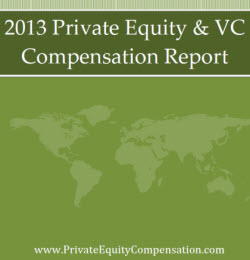Private equity firms are likely to come under deeper scrutiny from regulators following a finding that several firms exploited broad and vaguely written agreements with the clients to collect inappropriate fees. The finding warned that the current environment of limited regulatory oversight leads to temptations for the private equity firms to put their interest ahead of the clients’ interests. Andrew Bowden, who heads the Securities and Exchange Commission (SEC) unit conducting compliance-related inspections at private equity firms described the findings as remarkable and said that the agency found violations or material weaknesses in controls in over half of the private equity managers examined so far.
Dodd-Frank Act Makes PE Registration Compulsory
 A key provision of the Dodd-Frank Wall Street Reform and Consumer Protection Act of 2010 makes it mandatory for private equity firms to register with the Securities and Exchange Commission. The provision also requires PE firms to submit to examinations by the market regulator.
A key provision of the Dodd-Frank Wall Street Reform and Consumer Protection Act of 2010 makes it mandatory for private equity firms to register with the Securities and Exchange Commission. The provision also requires PE firms to submit to examinations by the market regulator.
Following the passage of the bill, the SEC set up a dedicated unit in 2012 to examine recently registered private equity investment advisers. The regulator has set a self-imposed target to complete examining 25 percent of the new private fund registrants by the end of this year.
The agency has so far examined some 150 PE firms and found violations at more than half the firms. Commenting on the finding, Bowden said, “A private equity adviser is faced with temptations and conflicts with which most other advisers do not contend,” and added that “We have seen that these temptations and conflicts are real and significant.”
Backdoor Fees, Hidden Fees Quite Common
A practice that was found to be common with most private equity firms is charging clients for the use of specialists who are also known as “operating partners”. The agency noted that these specialists are in effect employees of the firm and ought to be paid out of the private equity firm’s income.
The regulatory unit also noted instances of PE firms shifting expenses from themselves to their clients during the middle of a fund’s life without disclosing the new fees to clients. Examples include charging clients for so called back office functions such as compliance, legal and accounting even though these have traditionally been included as services provided for the management fee.
Other findings include discrepancies on valuation with many PE firms using a valuation methodology different from the one disclosed to investors. With regard to marketing materials, PE firms regularly published inflated internal rates of return without including fees and expenses, often used projections as opposed to actual valuations, and made lofty claims about the investment team.
PE Industry to Attract More Attention
Large private equity firms which aggressively lobbied against the private equity disclosure requirement of the Dodd-Frank Act largely dismissed the observation of Bowden and downplayed the findings of the report. Commenting on the finding, Bill Katz, a private equity analyst at Citi points out that private equity managers listed on the stock market are already routinely subjected to examinations by the SEC. Katz adds that the issues raised are geared towards smaller PE firms lacking robust compliance and operational infrastructure.
But John Carney, co-head of corporate investigations at law firm BakerHostetler warns that enforcement usually follows the findings of the SEC team. He cautions that it is time for private equity managers to re-examine their culture, and to take a relook at their partnership agreements, disclosure standards and compliance practices.
Close Scrutiny To Impact Job Market
The findings of the regulator make a strong case for an even deeper scrutiny of the private equity firms. The closer scrutiny is likely to result in private equities being unable to pass on to investors certain fees and expenses which they were able to in the past. This additional cost burden may result in the PE firms maintaining strict control on their expenses and this self-imposed control on spending will likely put a damper on hiring plans. Hiring related to compliance functions may see an increase but the increase is unlikely to make up for the expected pullback in overall hiring.

